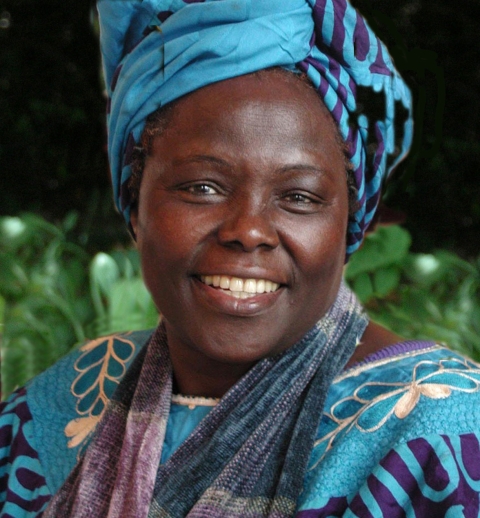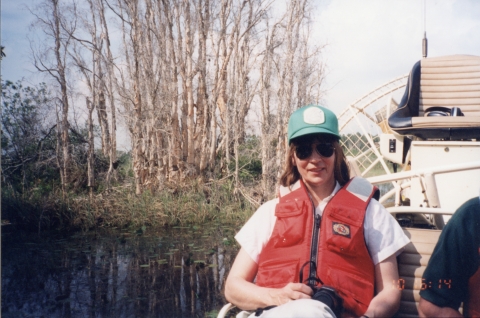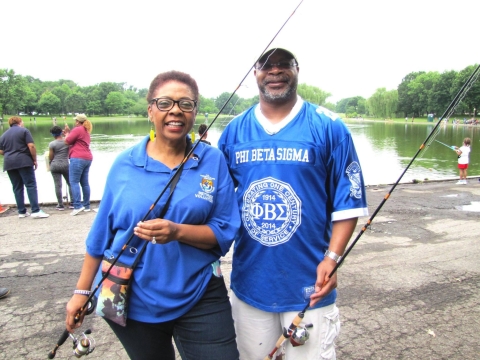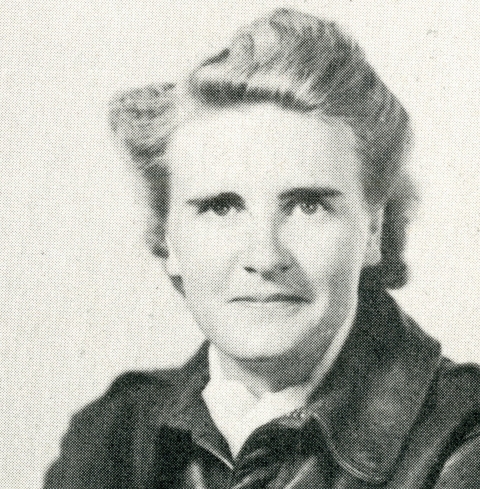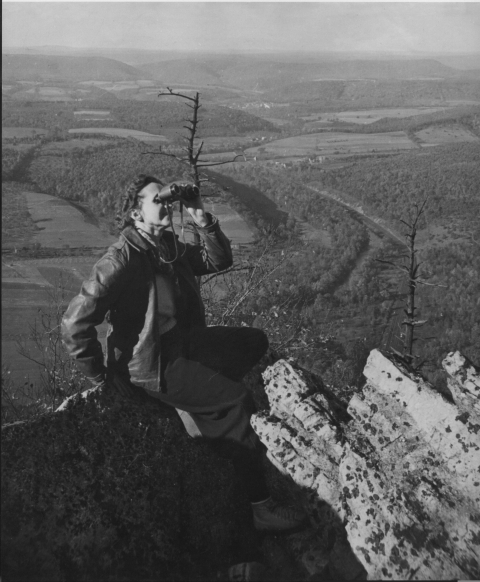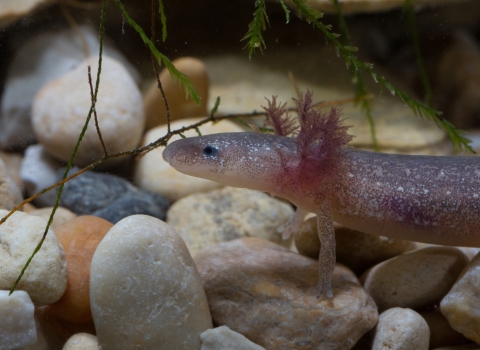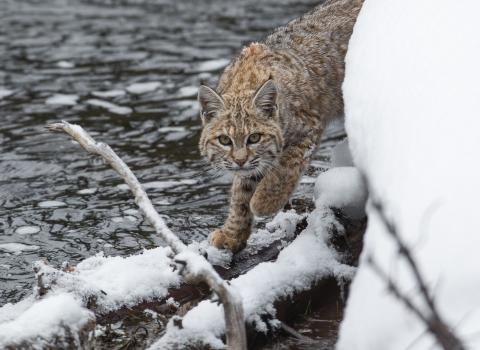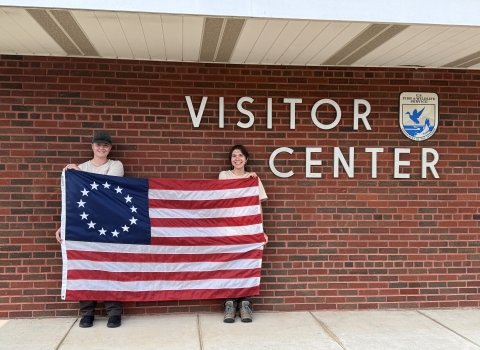Harriet Hemenway fought the exploitation of birds and their feathers for fashion. Aurora Castillo spoke out against environmental degradation, pollution and injustices in East Los Angeles. Eugenie Clark led ground-breaking research on sharks and other aquatic organisms. And Wangari Maathai started the Green Belt Movement in Kenya to combat deforestation.
We can’t tell the full story of conservation without including women, though many have tried. While John Muir, Teddy Roosevelt, Henry David Thoreau and Ansel Adams are household names, you may not have recognized the women listed above.
Female advocates for wildlife and the environment have left similarly meaningful marks on our world, despite having to overcome more barriers. In many cases, their unique perspectives, skills and connections led to their success — a reminder of the importance of empowering underrepresented voices. Conservation heroes like Dr. Jane Goodall, Greta Thunberg and Rue Mapp continue to make history today. You can make a difference too!
In honor of Women’s History Month, take the quiz to see which female conservationist best matches your interests and change-making style, and find your stewardship superpower.
Take the quiz!
Which conservation issue is most important to you?
A. Endangered species protection
B. Aquatic habitat restoration
C. Land preservation
D. Clean air and water
What was your childhood dream job?
A. President
B. Scientist
C. Business owner
D. Teacher
What do you like to do while on vacation?
A. Meet the locals
B. Adventure sports, like bungee jumping
C. Spend time with the people you love
D. Take pictures and video
Within your friend group, you’re known as the:
A. Peacekeeper
B. Daredevil
C. Ride or die
D. Social butterfly
Pick a hobby:
A. Team sports
B. Travel
C. Rock climbing
D. Art
Results:
Mostly A's: Mollie Beattie
The first female director of the U.S. Fish and Wildlife Service, Mollie Beattie was a strong-willed, diplomatic leader. She fiercely defended the Endangered Species Act at a time when many in Congress opposed it, and she had a natural way of winning over her critics, such as Congressman Don Young. Despite a rocky start to their relationship, the two developed a mutual respect, and after her death, he pushed to name a portion of the Arctic National Wildlife Refuge in her honor.
In a landmark moment, Beattie helped release the first gray wolves back into Yellowstone National Park, beginning a decades-long project to restore the population. Trained as a forester, she understood that every species is important and was vocal about paying attention to human impacts on all creatures. "When we see the snails and the mussels and the lichen in trouble, it is a signal that the ecosystems upon which we, too, depend are unravelling," she said.
If you answered mostly A's, you're an expert negotiator, skilled at working with others and winning them over. Your superpower is your ability to lead with candor and collaborate with all types of people, even those who have differing opinions to your own. Use your voice to speak out about conservation issues and unite groups towards a common mission.
Mostly B's: Mamie Parker
After beginning her career as a fish biologist, Dr. Mamie Parker broke through the glass ceiling twice, as the first African American to serve as a U.S. Fish and Wildlife Service regional director and the first Black woman to hold the position of assistant director for Fisheries and Habitat Conservation. She helped create the National Fish Habitat Action Plan to restore and protect aquatic habitats and co-chaired the Aquatic Nuisance Task Force to address invasive fish species, including snakehead and Asian carp.
In retirement, Parker has shared her knowledge and talents as a board member for numerous conservation organizations. Dedicated to her mission of raising others up, she mentors women and people of color and encourages them to explore the STEM fields, as well as actively supports legislation for hiring a more diverse workforce.
If you answered mostly B's, you know no limits and encourage others to push beyond the status quo. Having big dreams and an optimistic attitude is your superpower. Take small steps, or big leaps, towards your goals, even if others tell you they’re far-fetched. We’ll need innovative minds to solve conservation issues now and in the future.
Mostly C's: Celia Hunter
An adventurer at her core, Celia Hunter learned to fly and joined the Women Air Force Service Pilots (WASP) during World War II. After the war, she and her best friend, Ginny Wood, flew themselves to Alaska, where they started the first eco-tourism business in the state. This was an era of change and development in Alaska, and the two women were keenly aware of the need to actively protect wilderness.
Celia strongly supported creation of the Arctic National Wildlife Refuge and cofounded the Alaska Conservation Society to give Alaskans a voice on national issues that impacted the state. One of her biggest successes was pressing Congress to pass the Alaska National Interest Lands Conservation Act, protecting more than 100 million acres. She accomplished much of this with her friend Ginny.
If you answered mostly C's, you might work best in a dynamic duo! Your superpower is your adventurous spirit, combined with an ability to build strong relationships and capitalize on individual strengths. Seek out others who share your passions and use your combined energy to accomplish more than you would on your own.
Mostly D's: Rachel Carson
A talented writer and accomplished scientist, Rachel Carson combined her passions to amplify stories about the environment. Carson worked as an aquatic biologist for the U.S. Fish and Wildlife Service and became editor-in-chief of the agency’s publications.
She is best known for her book “Silent Spring” that shined a spotlight on the dangers of pesticides to the natural world. This was a sticky topic, because pesticides, like DDT, played a large role in the agricultural industry. Despite the negative response from many, Carson testified in front of Congress and ultimately can be credited with the government’s decision to ban DDT, saving species such as the bald eagle.
If you answered mostly D's, you have a way with words. Whether it’s through social media, writing, music or video production, your superpower is being able to connect with audiences. Consider how you can best spread conservation messages and communicate well researched information widely! A blog, social media or writing for your local newspaper... The sky’s the limit!
Taking action
There are many ways to make a difference, and conservation counts on every level, including in your backyard or local community. We hope the accomplishments of these notable women encourage you to spearhead a conservation project important to you. If you’re looking for more inspiration, check out the Conservation Heroes Hall of Fame.


